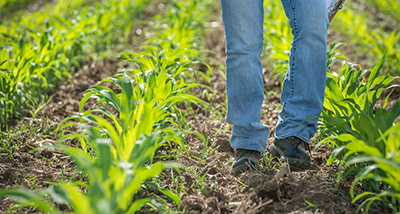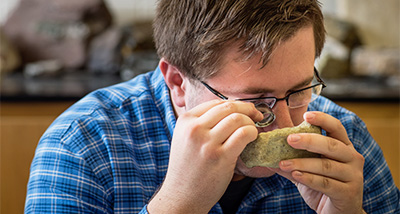
Why Study Conservation?
Major/Minor | Environmental Sciences/Science | CAFES
As a conservation major, you’ll focus on the scientific, field-based management of our natural resources - including wildlife, forests, prairie, fresh water, soil and air - with a strong emphasis on habitat conservation, environmental outreach and spatial analysis.
We offer four options for conservation majors:
- Environmental Conservation Option: This option provides a field-based approach to holistically managing our natural resources from freshwater systems to forest and prairies and prepares you for careers in habitat conservation and wildlife management.
- Ecological Restoration Option: In this option, you'll develop the skills and background knowledge necessary to recreate, initiate and accelerate the recovery of impaired ecosystems with the goal of sustaining biodiversity and improving ecological resilience. This option is one of the few programs globally that is aligned with Society for Ecological Restoration’s academic standards and upon graduation with this option, you'll be eligible for the “Restoration Practitioner-In Training” professional certification.
- Natural History and Interpretation Option: Interested in environmental education, outreach and interpretive services and want needed skills for the "Next Generation of Natural History?” This option focus on training well-rounded, broadly trained naturalists who are aware and careful observers of the natural world, familiar with environmental history and organismal biology and will prepare you for careers like extension educator, nature center interpreter, park ranger, environmental writer and more.
- Geographic Information System (GIS) Option: This option is designed to provide you with hands-on experience so you can develop advanced skills in GIS as it relates to conservation and natural resources. You'll be trained in map making, spatial analysis and remote sensing of natural systems using software and techniques in a state-of-the-art GIS lab and prepared for roles like GIS technician or geospatial consultant for state and federal agencies, private environmental consultation firms and non-profit, non-governmental conservation organizations.
67%
Of Students Received Financial Aid in 2022-2023
$2.3M
Scholarship Dollars Awarded in 2022-2023
700+
Students in Honors Programs
Conservation
cafes@uwrf.edu // 715-425-3535
Your Degree:
Undergraduate
Area of Study:
Environmental Sciences/Science
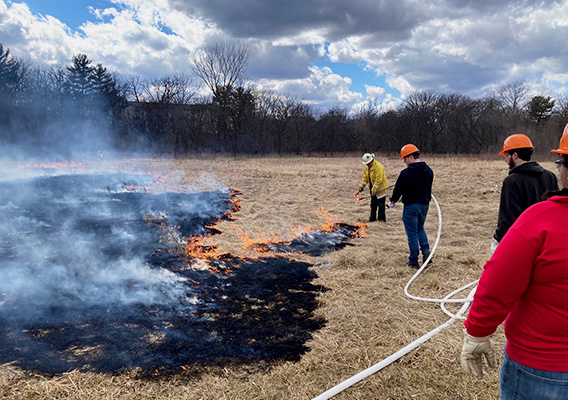
Skills and Learning Outcomes
- Demonstrate knowledge of regional and global ecosystems.
- Summarize the technical and regulatory dimensions for developing the human-built environment in ways that avoid, minimize or mitigate the impacts on natural systems.
- Identify characteristics and attributes that define a sustainable environment and develop strategies and practices to enhance those characteristics.
- Demonstrate knowledge of the role of conservation, ecological restoration and the development process in fostering sustainability across the social, economic and environmental pillars.
- Critically analyze and communicate information related to natural resource management and sustainable development issues by conducting scientific research focused on conservation and environmental planning and more.
Types of Courses
- Community Decision Making
- Environmental Policies and Administration
- Environmental Sustainability
- Foundations of Ecological Restoration
- Hydrology and Water Quality
- Land Use Theory and Practice
- Prairie Restoration and Fire Ecology
- Remote Sensing of Natural Resources
- Site and Landscape Planning
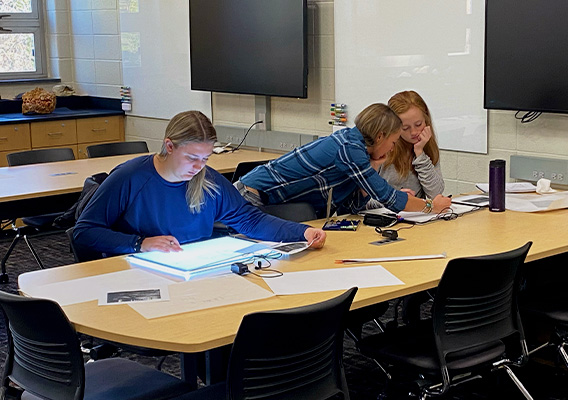
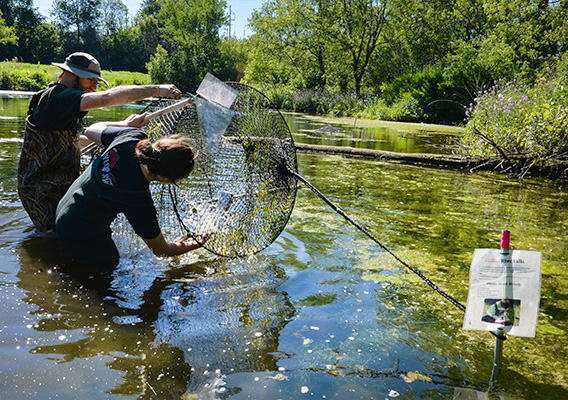
Potential Careers
Conservation and environmental planning students find work in a variety of roles including:
- Community Planner
- Conservation or Game Warden
- Developer
- Ecological Restoration Specialist
- Environmental Planner
- Natural Resource Manager
- Park Ranger
Get More Information
Interested in learning more about UWRF or any of our 70+ areas of study? Just share your contact information and we'll be in touch!


